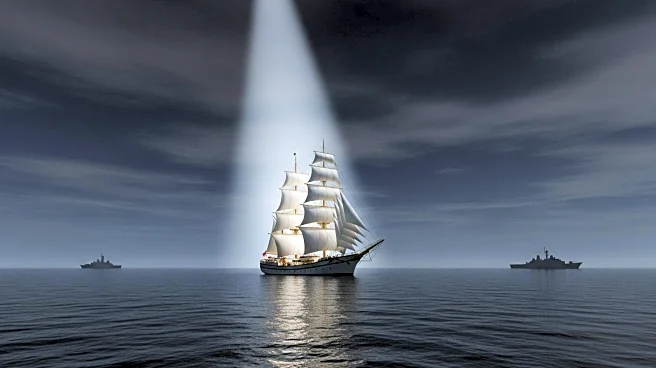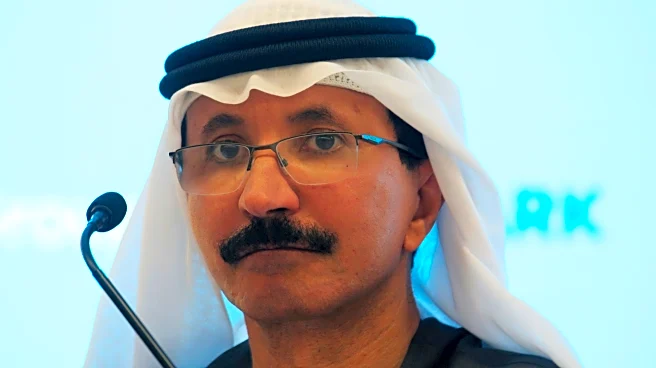What's Happening?
Israeli forces have intercepted the last vessel of the Global Sumud Flotilla, a humanitarian mission aimed at delivering aid to Gaza. The flotilla, initially consisting of 44 boats, was dismantled by the Israeli military, which detained hundreds of activists. The final boat, the Polish-flagged Marinette, was seized on Friday morning. The International Committee to Break the Siege of Gaza reported that several detainees have begun an open-ended hunger strike. Israel's Foreign Ministry has deported four Italian citizens involved and plans to deport the remaining activists. Reporters Without Borders condemned the detention of journalists among the activists, citing violations of the right to inform. The flotilla's interception has sparked global condemnation, with world leaders and organizations criticizing Israel's actions.
Why It's Important?
The interception of the flotilla highlights ongoing tensions surrounding the blockade of Gaza and raises questions about international law and humanitarian efforts. The flotilla's mission was to deliver essential supplies to Gaza, a region facing significant humanitarian challenges. The global condemnation of Israel's actions, including diplomatic repercussions from countries like Colombia, underscores the international community's concern over the treatment of activists and journalists. The incident may impact diplomatic relations and influence public opinion on the Israeli-Palestinian conflict, potentially affecting future humanitarian missions and international policies regarding Gaza.
What's Next?
The deportation of detained activists is underway, with Israel aiming to complete the process swiftly. The international community, including European nations, has called on Israel to respect the rights of the detained crew members. The United Nations has yet to comment, but its special rapporteur for Palestine has criticized the interceptions. The situation may lead to further diplomatic actions and protests worldwide, as stakeholders continue to advocate for the rights of those involved and the humanitarian needs of Gaza.
Beyond the Headlines
The interception of the flotilla raises ethical and legal questions about the use of naval blockades and the treatment of humanitarian missions. The incident may influence future international maritime policies and the role of non-governmental organizations in conflict zones. The global response could lead to increased scrutiny of Israel's actions and pressure for policy changes regarding Gaza. The involvement of high-profile figures and journalists highlights the importance of media coverage in shaping public perception and policy discussions.










